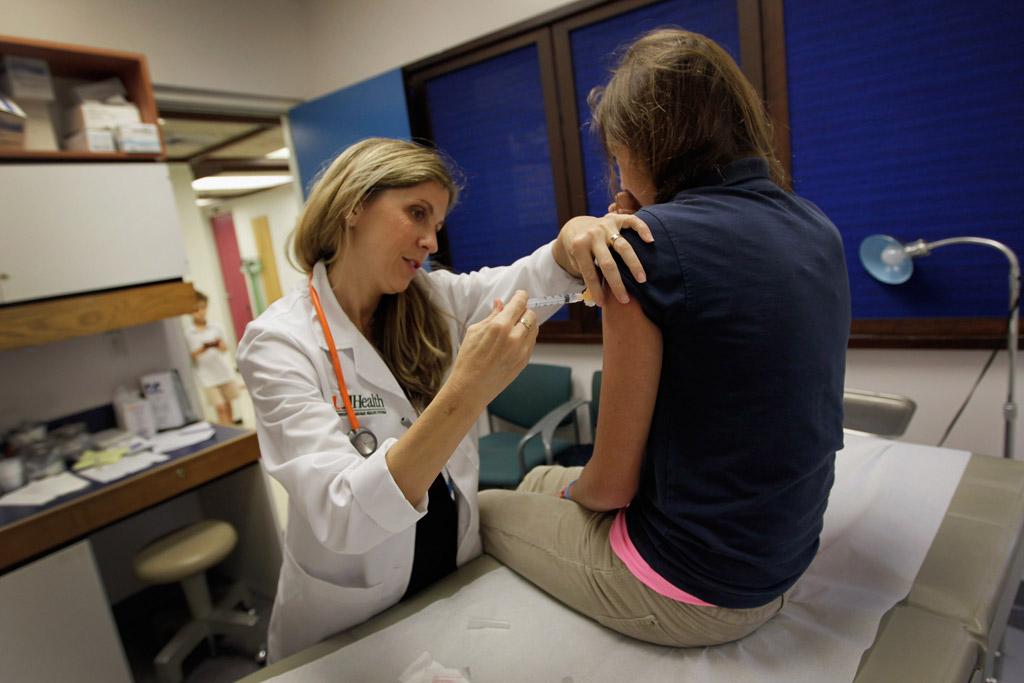HPV vaccine protects both vaccinated and unvaccinated
University of Miami pediatrician Judith L. Schaechter gives an HPV vaccination to a 13-year-old girl. The vaccine for human papillomavirus, or HPV, is given to prevent a sexually transmitted infection that can cause cancer.
A new study published in Pediatrics says that non-immunized teens are showing a lower infection rate of the human papillomavirus (HPV) thanks in part to their immunized counterparts.
The study is among the first to show signs that the human papillomavirus vaccine helps promote what HealthDay called "herd protection", which it defined as, "a decrease in infections among the unimmunized thanks to lower rates of infections among other people in their community who might otherwise be transmitting the disease."
The study followed two sets of women ages 13-26 who had already had sexual contact and were seen at one of two primary-care clinics in Cincinnati. The first group was seen in 2006 or 2007, prior to the HPV vaccine becoming available. The second was seen between 2009-2010, after the vaccine was made available to the general public, ABC News reported.
Nearly 60 percent of the group seen in 2009-2010 had received the HPV vaccine, the Telegraph reported.
The data showed a 58 percent decrease in HPV amoung those vaccinated, and a 49 percent decrease in HPV in those unvaccinated.
Dr Jessica Kahn, a physician in the division of Adolescent Medicine at Cincinnati Children's and lead author of the study told the Telegraph that the data was remarkable. "Two of these HPV types, HPV-16 and HPV-18, cause about 70 per cent of cervical cancer. Thus, the results are promising in that they suggest that vaccine introduction could substantially reduce rates of cervical cancer in this community in the future," she said.
More from GlobalPost: HPV is three times more common in men than women, study finds
The story you just read is accessible and free to all because thousands of listeners and readers contribute to our nonprofit newsroom. We go deep to bring you the human-centered international reporting that you know you can trust. To do this work and to do it well, we rely on the support of our listeners. If you appreciated our coverage this year, if there was a story that made you pause or a song that moved you, would you consider making a gift to sustain our work through 2024 and beyond?
